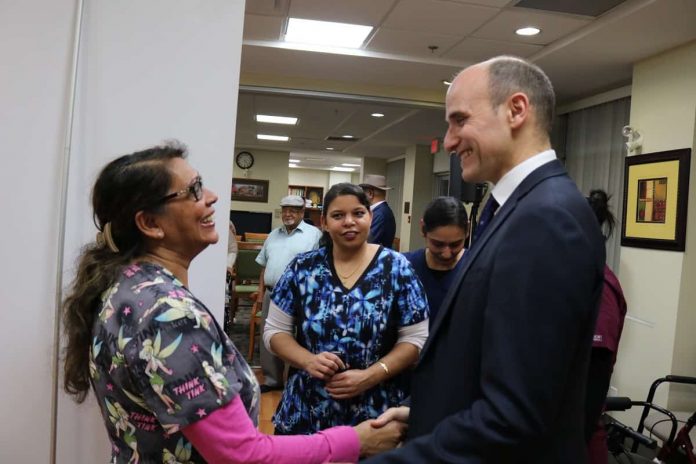
AS millions of Canadians provide informal care and support for seriously ill family members, the federal Liberals claim that is why in Budget 2017 they announced a commitment to support family caregivers with Employment Insurance benefits that are more flexible, inclusive and easier to access.
As part of this commitment, the Government of Canada moved forward with the following improvements to the Employment Insurance (EI) program in order to better support workers who take time off work due to specific life events:
Family caregiver benefit: Caregivers who provide care to a critically ill or injured adult family member now have access to a new family caregiver benefit for up to 15 weeks. This helps more Canadians support loved ones when they need it most. For the first time, immediate and extended family members of children who are critically ill have access to the new family caregiver benefit for children that was previously available only to parents. It replaces the Parents of Critically Ill Children benefit and continues to provide up to 35 weeks of benefits. Both medical doctors and nurse practitioners are now able to sign medical certificates for family caregiving benefits, which simplifies the process.
Compassionate care benefit: The compassionate care benefit continues to be available to caregivers and provides up to 26 weeks of EI support to care for or support a family member at end-of-life.
Maternity benefits: Eligible pregnant workers are able to receive EI maternity benefits earlier, up to 12 weeks before their due date. This increased flexibility allows pregnant workers to consider their personal, health and workplace circumstances when choosing when to begin their maternity leave.
Parental benefits: Parents are able to choose the parental leave option that best meets their family’s caregiving needs: standard parental benefits (taken over 12 months) or extended parental benefits (taken over 18 months).
 These changes apply to EI-eligible workers, as well as self-employed Canadians who opt into the EI program for access to EI special benefits, and who meet minimum income and other requirements to qualify for EI special benefits.
These changes apply to EI-eligible workers, as well as self-employed Canadians who opt into the EI program for access to EI special benefits, and who meet minimum income and other requirements to qualify for EI special benefits.
These improvements were informed by consultations on EI maternity, parental and caregiving benefits and reaffirm the Government’s commitment to improving the EI program so that it is better aligned with the realities of today’s labour market and addresses the needs of Canadian families.
“Every Canadian’s situation is unique. By making EI caregiving, maternity and parental benefits and leaves more flexible, inclusive and easier to access, we are providing hard-working middle-class Canadian families with more options to better balance their work and life responsibilities,” says Jean-Yves Duclos, federal Minister of Families, Children and Social Development.
Quick Facts
- Since December 3, 2017, over 8,300 claims have been established for caregiving benefits for adults and children.
- It is estimated that approximately 22,000 claims will be established for the new EI caregiving benefits by fall 2019.
- As of September 2018, over 22,000 parents have chosen the extended parental benefit option since it began in December 2017.
- In 2016–17, there were approximately:
o 170,000 maternity claims that were paid $1.1 billion in benefits; and
o 196,000 parental claims that were paid $2.7 billion in benefits, of which 85 percent of claims were by women and 15 percent were by men.











